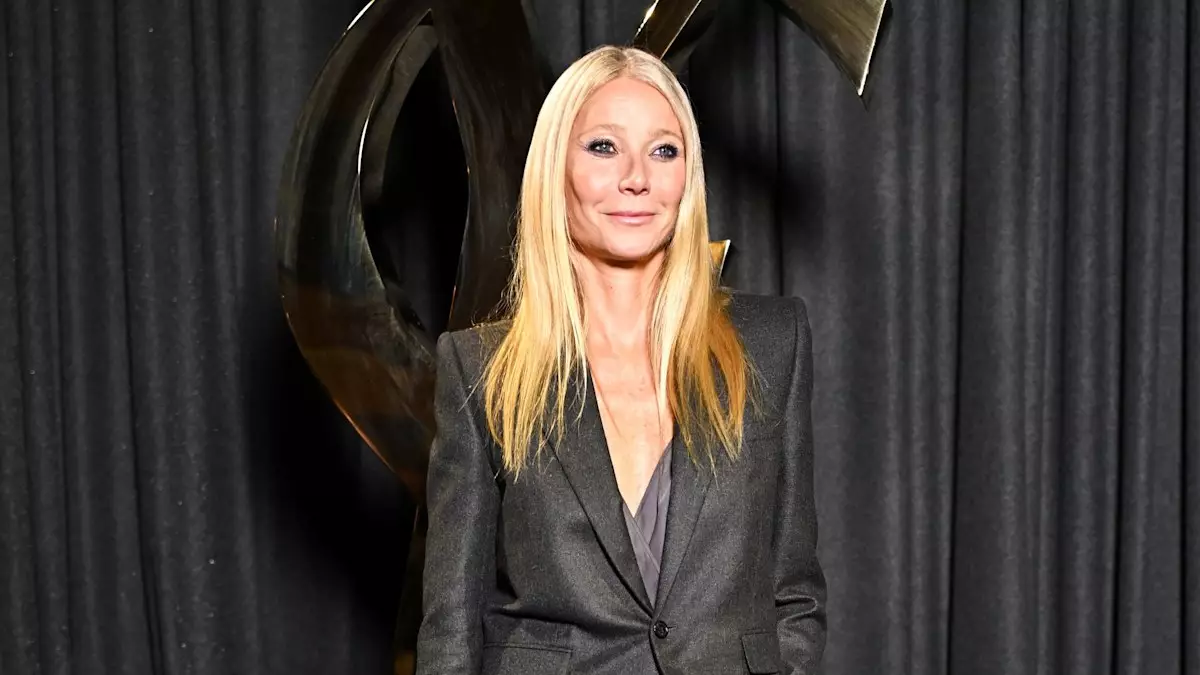In recent years, the wellness industry has been infamous for its often oppressive standards, pushing followers towards both extreme diets and unrealistic expectations. Gwyneth Paltrow, a figure synonymous with this culture, has exemplified these trends. However, her recent admission regarding her evolving dietary habits has stirred conversation, shifting the narrative towards a more balanced and nuanced approach to health and nutrition. Though the media was abuzz with her confession about indulging in sourdough bread and cheese, the implications of her statement may signal a pivotal moment in how we view nourishment and self-acceptance.
It is no surprise that Gwyneth’s previous adherence to strict diets, including a phase of rigorous macrobiotics, led her towards a less sustainable lifestyle. The well-known actress and entrepreneur expressed the intensity of her commitment to eating “healthily” — a testament to how severe dietary restrictions can manifest into an unhealthy obsession. During the pandemic’s darkest days, she began to sense the limits of that rigidity, eventually recognizing that nourishing one’s body should not come at the cost of mental well-being.
Breaking the Cycle of Restriction
Many wellness experts have stood in solidarity with Gwyneth’s newfound philosophy. Rachael Sacerdoti, a wellness strategist, emphasizes the importance of sustainable changes over quick fixes, asserting that the excessive restrictions popular in diet culture result not just in physical consequences but hydexential emotional and psychological turmoil. Indeed, the myriad of individuals who have yo-yoed through extreme diets can relate; the allure of fast results can lead to destructive thought patterns and strained relationships with food.
What Gwyneth’s revelations represent is a deeper cultural shift. For years, the mantra was “all or nothing,” but now there’s an increasing awareness that true wellness encompasses a framework of moderation. If high-profile figures begin to dismantle the damaging narrative that has long prevailed, it may embolden others to explore healthier practices without the fear of social or self-imposed judgment.
Finding Freedom in Food
As women are inundated with a plethora of dieting options, many are increasingly open to shifting from deprivation to enjoyment. Rachael emphasizes the need for strategies that encourage moderation rather than elimination. Sustainable wellness is not just about a diet; it’s about integrating balance into your life—something Paltrow is boldly championing by publicly stepping away from the obsession with perpetual dietary perfection.
Practicing mindful eating, listening to one’s body, and understanding how different foods affect not only physical but emotional health is pivotal in this journey. Coincidentally, these practices allow individuals to reclaim their right to enjoy food rather than viewing it through a restrictive lens.
Practical Steps for Sustainable Change
For those inspired by Gwyneth’s shift and eager to recalibrate their approach, a series of practical approaches can guide a seamless transition:
1. Addition Over Elimination: Rather than focusing on what to cut out, concentrate on incorporating more diverse, nutritious foods into your meals.
2. Mindfulness is Key: Engage in practices that promote awareness of hunger cues, making meals a richer experience rather than a set of rules to follow.
3. Embrace Moderation: Allow room for indulgence. Having a slice of cake or some pasta should not ignite guilt or shame.
4. Seek Consistency: It’s better to eat healthily most of the time rather than strive for daily perfection which often leads to burnout.
5. Tune into Your Body: Recognize how various foods make you feel, realizing that overall well-being far exceeds aesthetic considerations.
A Progressive Approach to Wellness
The tide of the wellness industry is indeed changing. Rachael’s insights resonate strongly with the idea that health should not be synonymous with suffering. The movement is towards lasting habits that nurture both body and mind. Gwyneth Paltrow’s candid admission challenges the status quo, encouraging not just fans but everyone to rethink their relationships with food. As we glide further into this era of accessible wellness, let us collectively acknowledge that a balanced approach to eating might just be the revolutionary idea we need for enduring health and happiness.

